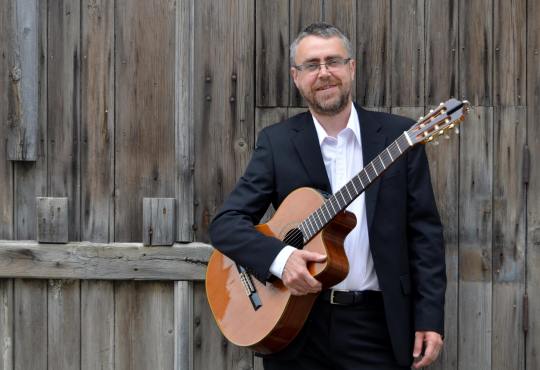|
Initially this album fulfills the expectation that it is to be one of 14 dance tunes, originals but keeping well within the conventions of a tradition. Given that this is music from Quebec it doesn't come as a surprise to find the track list includes gigues (a mainstay of the region's tradition), Celtic style jigs and reels, and melodies with a sometimes decidedly French flavor. In fact the titles of all the tracks here indicate that they are conceived as dance tunes.
But as Souvenance develops things are not always quite what they seem. Hearing “La marche d'Ernest,” which slips from a two-in-a-bar march into waltz time and back again, I started to imagine the possibly catastrophic consequences should such a march be selected on a parade ground. But it's a very good tune. Later there's a track whose title tells you exactly what happens: "�Slip and single jig d'Alphonse."� And it is one tune. The A tune has a slip jig rhythm (it actually sounds like a triple-time Cajun waltz) then the B tune is a straightforward, single jig. An unsuspecting dancer might find themselves badly wrong-footed.
As it turns out, François Couture wears a number of different musical hats. He describes himself as being a “composer, musician, orchestrator, arranger and sound designer.... a man of boundless musical imagination, fearlessly blending modern electronic rhythms with subtle ethnic and even classical motifs.” So in Souvenance (Eng. 'remembrance') Couture would seem to be looking back at music from his own culture, perhaps that which he grew up hearing, and giving us his own take on it. The instrumentation is purely acoustic and we are in a very different world from the ambient and quite experimental sounds you might discover should you seek him out elsewhere. Couture himself is to be heard playing double bass, guitar, banjo and podo (feet). Most of the tunes are led by violinist Sylvain Neault, and with Couture on bass, doubling up on guitar or banjo, a string sound predominates. When accordionist Réjean Clouet joins the party it creates a nice contrast in texture. On three tracks Clouet leads the tune, including “La valse de Léo-Paul,'' a gorgeous tune which also features Daniel Fréchette on jaw's harp.
Sylvain Neault takes his fiddle into some attractive improvisation on several of the tracks including “La marche de Charles-Eugène,” a march with a definite swing to it and whose stomping guitar accompaniment to Neault's extemporising makes a different French connection, to the Hot Club de Paris. At three and a half minutes, this and "La valse de Léo-Paul," are the longest tracks on the album, with a couple of others coming out at only a little over two minutes.
Without risk of overstaying their welcome, several tunes could have benefited from being extended a little, developed either through further arrangement or more improvisation. All in all, this is a fine album, full of great tunes which show that François Couture has a great affection for the traditional music of his homeland, and that coming to it from his involvement in other musics gives his interpretation freshness and originality.
Find the artist online
|
